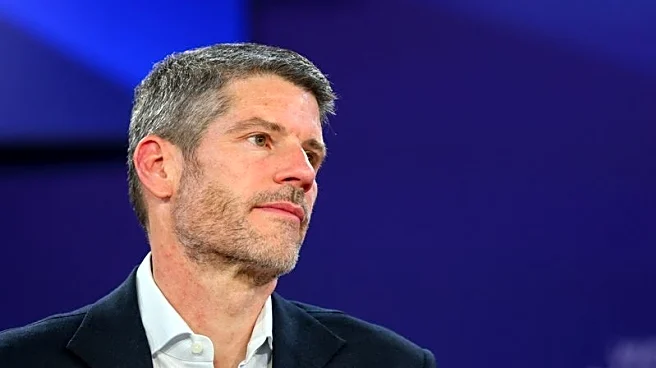What's Happening?
Chinese President Xi Jinping has removed Li Chenggang from his position as one of Beijing's top trade negotiators, according to state news agency Xinhua. This decision follows comments from U.S. Treasury Secretary Scott Bessent, who described Li as 'unhinged'
during a meeting in Washington. The removal comes amid escalating trade tensions between the U.S. and China, particularly after China tightened its rare earth export controls. In response, President Trump has threatened to impose a 100 percent tariff on Chinese goods. Li Chenggang was previously serving as the Permanent Representative of China to the World Trade Organization and held other significant diplomatic roles. He has been replaced by Li Yongsha.
Why It's Important?
The replacement of Li Chenggang is significant as it reflects the ongoing strain in U.S.-China trade relations. The rare earth export controls imposed by China are critical because these minerals are essential for global electronics production. The U.S. response, including potential tariffs, could further impact international trade dynamics and economic relations between the two countries. This development may affect industries reliant on these materials, potentially leading to increased costs and supply chain disruptions. The diplomatic shift also indicates China's strategic approach to handling trade negotiations with the U.S., which could influence future trade policies and agreements.
What's Next?
The U.S. and China are expected to continue high-level discussions to address the trade tensions. The replacement of Li Chenggang may lead to a shift in negotiation strategies from China, potentially affecting the outcome of these talks. Stakeholders in both countries, including businesses and policymakers, will be closely monitoring the situation to anticipate changes in trade policies. The international community may also react to these developments, as the trade war has broader implications for global economic stability.
Beyond the Headlines
The removal of Li Chenggang highlights the complex nature of international trade negotiations and the influence of personal dynamics in diplomatic relations. The characterization of Li as 'unhinged' by a U.S. official underscores the challenges in maintaining professional decorum amidst high-stakes discussions. This incident may prompt a reevaluation of diplomatic communication strategies and the role of individual negotiators in shaping bilateral relations.















